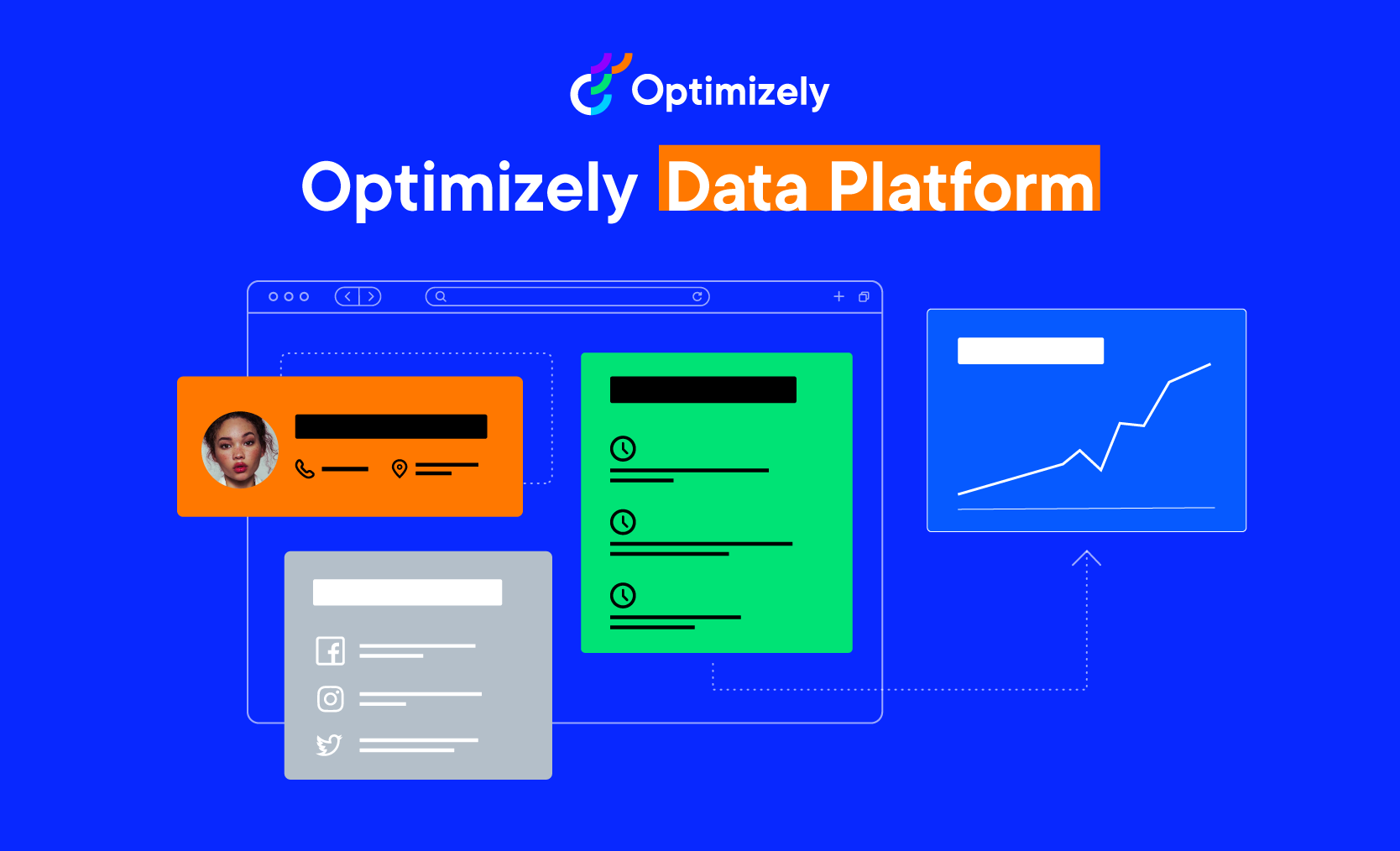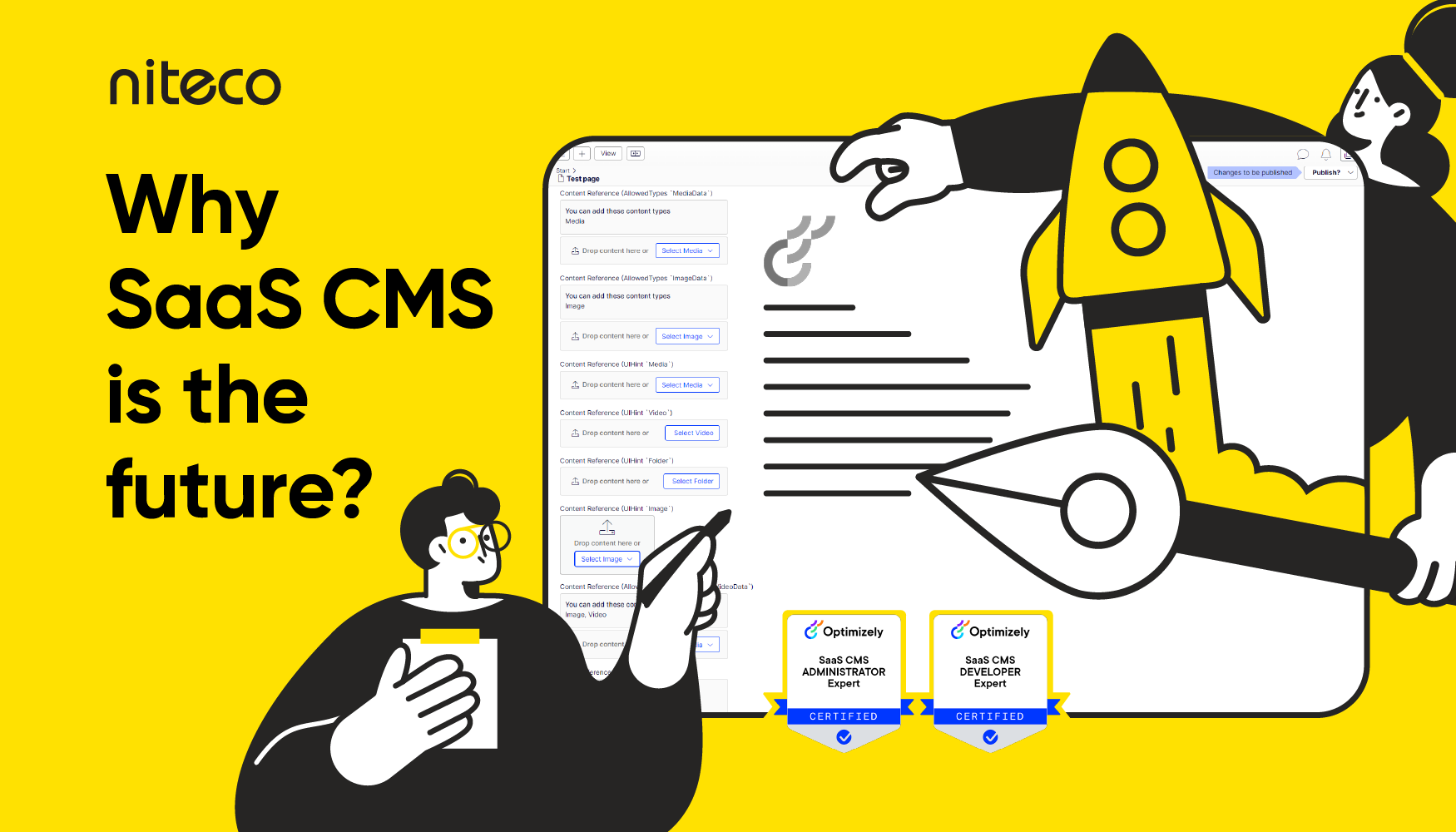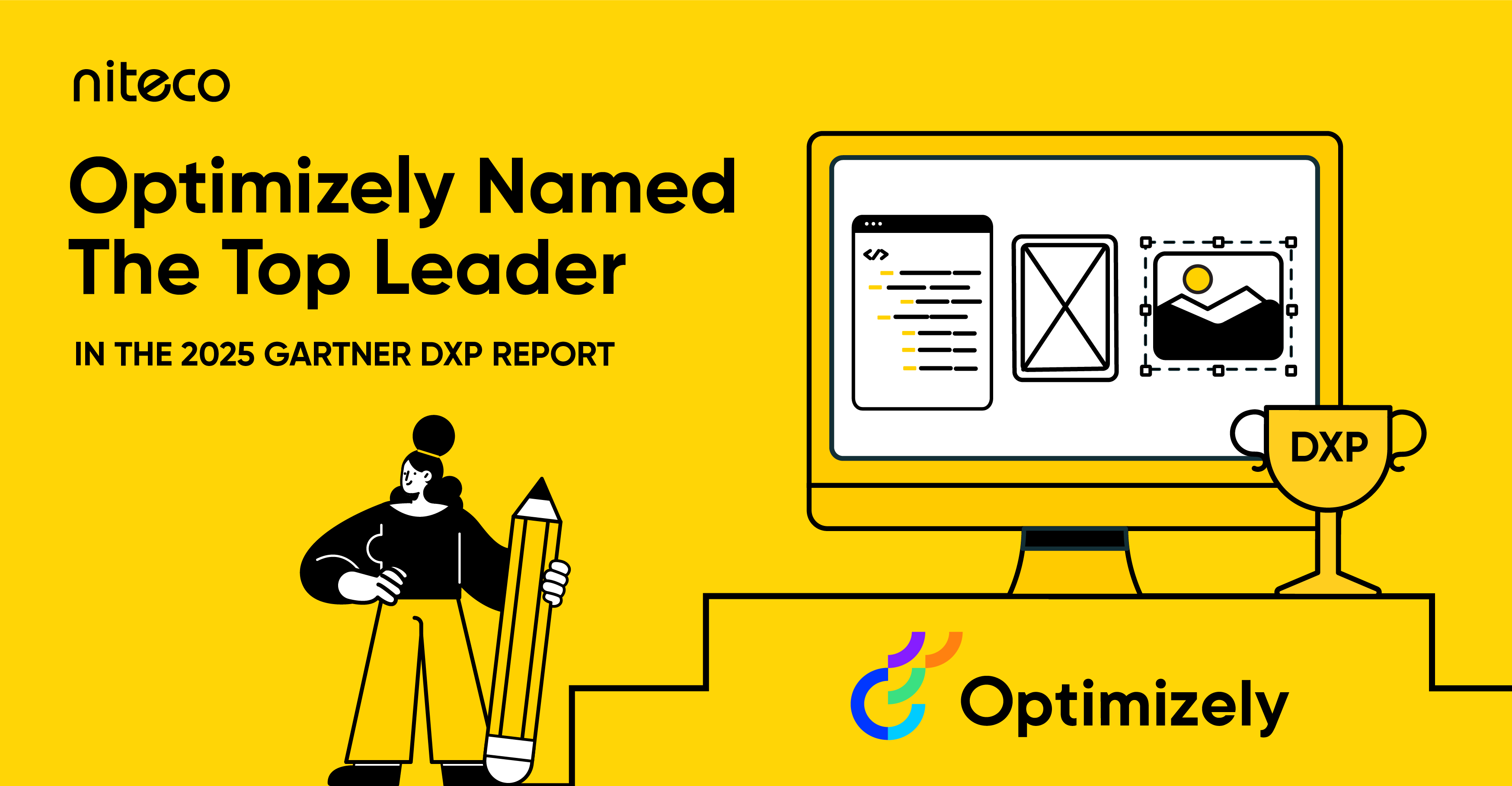According to a BCG publication, businesses can have anywhere between 20 to 500 touchpoints in a customer’s path to purchase. That’s a lot of room for things to get messy - especially if your customer data isn’t organized in a consistent, connected way. The result? Disjointed customer experiences that hurt your bottom line. Solution? Digital experience platforms (DXPs) are built to solve.
A DXP is more than just a CMS. It’s a unified platform where you can create, manage, and optimize every stage of your marketing journey. And Optimizely’s Digital Experience Platform aka Optimizely One is a front-runner in this field for a reason.
In this blog, we’re going to walk through what a DXP is and why we think businesses should be using the Optimizely DXP - Optimizely One.
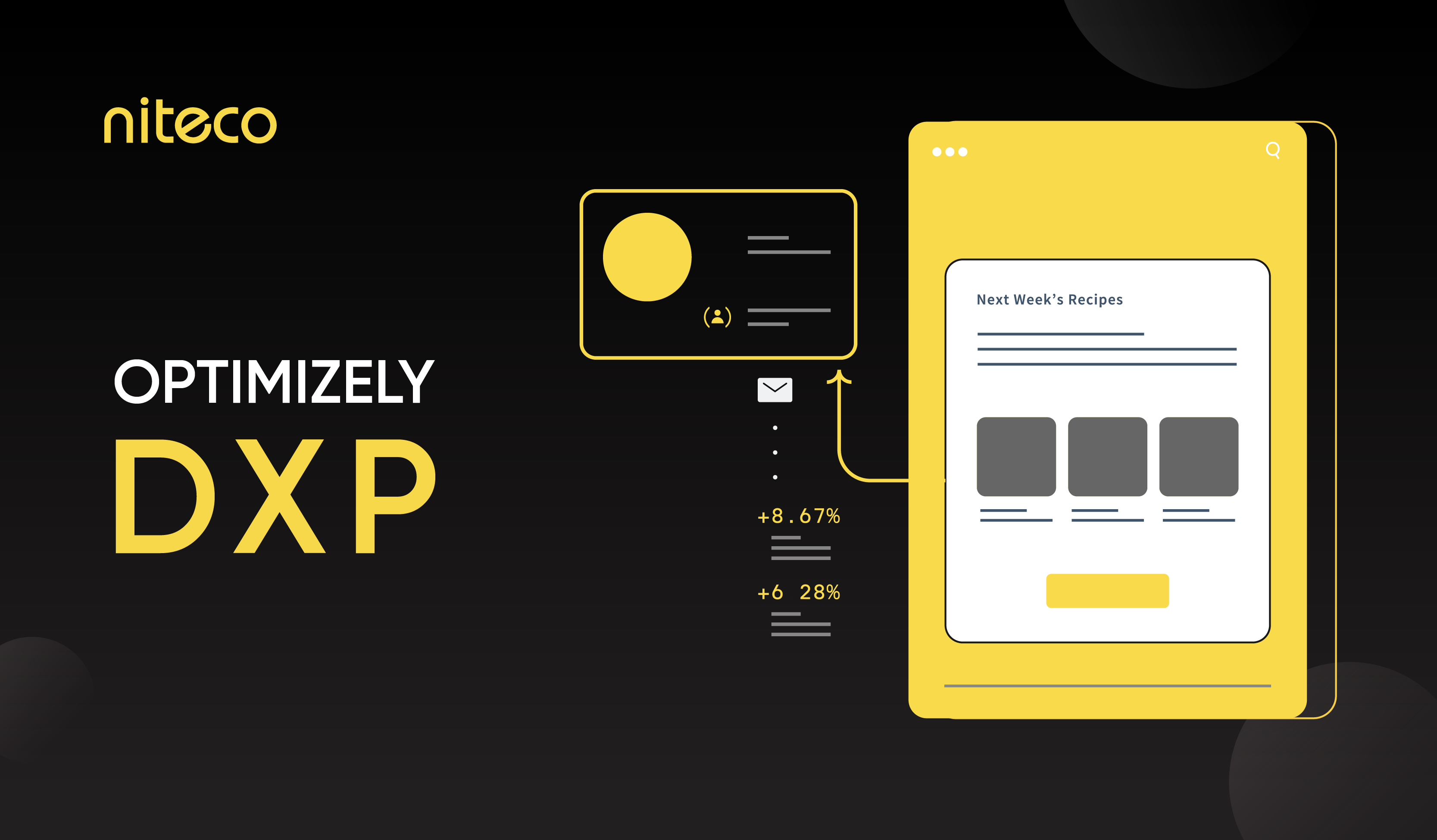
What is a digital experience platform?
A digital experience platform (DXP) is a piece of software that manages digital experience across a broad range of digital touchpoints. A DXP can be a single product, or a software suite containing multiple integrated applications and a wide range of functions in a single place. Some of the functional components include content management, Commerce, personalization, and experimentation.
In short, with a DXP, your business will have a more centralized way of building, managing, and optimizing digital journeys for your business and customers while maximizing scale and quality across all your business channels.
Read more: DXP vs. CMS: Key differences and which is right for you?
7 keys to choosing the right DXP
Choosing the right Digital Experience Platform (DXP) is a strategic decision that can impact everything from marketing agility to developer velocity and ultimately, business growth. Whether you're scaling globally, running high-volume campaigns, or trying to better serve your customer base, it's essential to evaluate a DXP based on your long-term needs - not just short-term fixes
Here are 7 critical factors to consider when evaluating a DXP for your business:
- Integration capabilities: Ensure the platform can integrate with your current ecosystem - CRM, ERP, marketing automation tools, and data warehouses - through robust APIs or pre-built connectors.
- Content and asset management features: Look for intuitive authoring tools, approval workflows, and centralized digital asset management to keep brand consistency and production efficient.
- Developer flexibility: A modern DXP should offer headless CMS support, API-first architecture, and SDKs for front-end frameworks like React or Angular to empower dev teams.
- Personalization at scale using AI/ML: Choose a DXP with built-in AI capabilities that allow you to deliver dynamic, real-time experiences tailored to user behavior and intent.
- Experimentation tools: Native A/B testing and multivariate testing tools enable data-driven decisions, helping you optimize UX, content, and conversion paths with confidence.
- Performance and scalability: The platform should be built on a scalable cloud infrastructure (like Azure or AWS) and include CDN support for high-speed global delivery.
- Support and ecosystem: Evaluate the vendor’s partner network, customer success resources, documentation, and community to ensure you have the support to succeed post-implementation.
What does Optimizely DXP do and why we choose Optimizely?
Optimizely One - Industry-leader and marketing-first DXP
The Optimizely Digital Experience Platform - Optimizely One is an industry-leading full-stack, end-to-end digital platform service package including all the basic and advanced components of a DXP in a single cloud service. It has been recognized as the top leader in Gartner Magic Quadrant DXP report 2025 and has retained its leadership position for 6 consecutive years with the highest scores of execution and the furthest placement for vision.
In short, using Optimizely One means you have access to tools that empower the full marketing cycle, with less developer dependency. Optimizely One enables marketers to plan, create, manage and optimize their campaign effectively, with a range of native tools such as the leading CMS (a leader in Forrester Wave 2025 report), a CMP, and Experimentation, and more.
And don’t worry if you’re already using a CRM solution such as Salesforce and your own marketing automation tools. Optimizely One can integrate with them through multiple APIs and extensions, so you can have a central repository for data from all digital channels. For projects where businesses need to move to more modern platforms like Optimizely, explore our deep replatforming expertise and redevelopment capabilities.
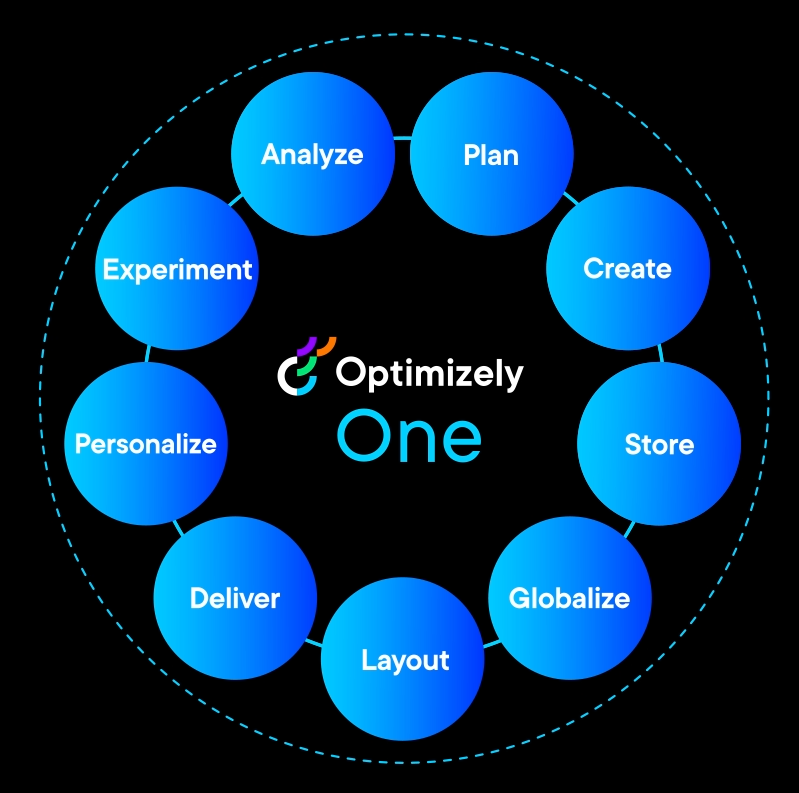
Source: Optimizely
Why Optimizely One stands out
As mentioned earlier, Optimizely DXP is a widely recognized platform - and for good reason. Below are the key benefits of choosing Optimizely One as your digital experience platform.
AI-driven everywhere with Opal
Opal is an intelligent, context-aware AI engine embedded across the platform - CMS, CMP, experimentation, commerce, and data - providing features like campaign ideation, content generation, task automation, and real-time segmentation suggestions.
Check out how Optimizely Campaign help improve marketing ROI.
Integrated experimentation with real-time personalization
A/B and multivariate testing are built into every part of Optimizely One - from CMS edits to commerce interfaces. Combined with real-time segment targeting and flicker-free delivery, this enables reliable, data-led optimization across all digital touchpoints.
Composable, API-first architecture
With headless and hybrid support, flexible front-end hosting, and one-click integrations through the Connect framework, Optimizely One adapts to any tech stack - integrating CMS, commerce engines like Shopify, CRM systems, CDPs, and more.
Next-gen CMS & DAM collaboration
The SaaS CMS features visual drag-and-drop editing, headless capabilities, semantic search, AI-powered translation, and native DAM integration. These tools streamline content creation, asset management, localization, and workflow coordination.
Unified data platform with real-time segmentation
The Optimizely Data Platform centralizes customer behavior, transactional data, and third-party integrations. It enables real-time and AI-suggested segments, advanced analytics, and automated data governance - fueling personalization and experimentation in one ecosystem.
Benefits of using Optimizely’s DXP
Enhanced customer engagement
With behavioral analytics and machine learning, Optimizely DXP delivers automated recommendations and personalized experiences. Faster page loads and CDN integration also ensure better performance and higher conversion potential.
Streamlined experiments and analytics
No more jumping between platforms. Optimizely’s Experimentation lets you run A/B tests, track results, and optimize experiences - all within a unified environment.
Streamlined digital experience
Centralize your entire content workflow - from ideation to publishing. Create once and publish across multiple channels, giving editors the flexibility to build and scale engaging experiences with ease.
Enhanced commerce experiences for your customers
Deliver personalized, seamless commerce journeys using AI-driven recommendations, real-time targeting, and headless commerce architecture. The result? More engagement, deeper loyalty, and better business outcomes.
Conclusion: Maximize your digital experience with Optimizely One and Niteco
It seems clear that focusing on customer experience is never a wasted effort. With Optimizely’s DXP, leveling up your customer experience becomes easier than ever. Now, you can make use of different functionalities the platform provides such as experimentation, automation, and advanced Commerce tracking.
If you are looking for a way to personalize customer experiences and ultimately level up the digital aspects of your business, Optimizely's DXP is the answer. If you’re wondering how to use this platform to your business’ advantage, Niteco has you covered.
As the largest certified Optimizely partner with over 15 years of hands-on experience, we know the platform inside and out. You don’t have to figure it out alone - we’ll help you design the fastest, most effective way to unlock the full potential of Optimizely One and elevate your digital experience. Contact us now!
Frequently Asked Questions
A modern DXP, like Optimizely One, empowers developers by providing headless CMS options, flexible APIs, and cloud-native infrastructure. This reduces manual overhead, supports agile workflows, and allows teams to quickly build, test, and scale digital experiences without relying heavily on backend development.
The Optimizely Intelligence Cloud, now part of the Optimizely suite offers AI-powered insights, behavioral analytics, and real-time content recommendations. Businesses benefit from improved personalization, increased engagement, and smarter decision-making based on user data and machine learning models.
Most Optimizely digital experience platform reviews highlight its ease of use for marketers, powerful experimentation features, and robust developer tools. Optimizely One stands out for its built-in experimentation, seamless integration options, and strong performance in content personalization, making it ideal for data-driven digital strategies.
to transform your business and drive results?

